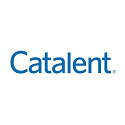What the Novo Holdings and Catalent deal means for pharma outsourcing
.png)
On February 5, 2024, Novo Holdings announced their intention to acquire pharma and biotech CDMO Catalent at US$16.5 billion. Read more about what this means for the pharmaceutical industry as a whole, from drugmakers to their partners in manufacturing.
A big deal: Novo, Catalent, and the rest
On February 5, 2024, Novo Holdings announced their intention to acquire pharma and biotech CDMO Catalent at US$16.5 billion. The deal will also see Novo Holdings sell three of Catalent’s fill-finish facilities to Novo Nordisk, in which Novo Holdings is the largest shareholder. While mergers and acquisitions are nothing new in the pharmaceutical outsourcing space, with more organisations looking to add manufacturing capacities to their portfolios, the Catalent acquisition was neither driven by a need for third-party capabilities nor increasing outsourcing capabilities for others. Instead, it comes as a result of securing manufacturing capacity for Novo’s weight-loss blockbuster drug Wegovy, with the three fill-finish facilities being sold to incorporate an in-house GLP-1 production network [1]. The deal has become one of the biggest transactions of cell and gene therapy capacity ever [1]. The more common deal between a pharma company and a contract organisation involves the divestment of a manufacturing site to the CDMO/CMO.
To say the least, the pharmaceutical industry has witnessed an unexpected shake-up. Questions around Catalent’s existing agreements with other drug sponsors like AstraZeneca, AbbVie, and BioNTech have only added to concerns regarding Catalent’s capabilities to meet operational obligations [2]. Commenting on the acquisition, AstraZeneca’s Chief Executive Pascal Soriot stated the importance of developing independent control over one’s own supply chain and in-house manufacturing capacity [3]. Competitor Eli Lilly, also in the weight-loss drug race with their own products Mounjaro and Zepbound, commented on the deal as unusual, with added concern surrounding the monopolised control of parts of the pharma supply chain [2].
The European Medicines Agency has announced their intention to investigate any risks posed by the acquisition on the availability of medicines processed at the sites to be sold to Novo Nordisk [4]. Novo Nordisk seems to be well aware of the benefits of this strategy – soaring demand for Wegovy can be met with the increased in-house manufacturing capabilities dedicated to the GLP-1 agonist drug product. The increased oversight of its own manufacturing facilities will also provide resilience against potential supply chain disruptions, ensuring a competitive edge in providing medicines to the market. Prior to the acquisition, Catalent was the main fill-finish partner for Novo Nordisk’s Wegovy. As of February 14, 2024, Catalent has reduced their workforce by 300 individuals, and seen their shares just exceed Wall Street estimates for Q2 revenues [5].
Implications for the future of pharma outsourcing
Though the acquisition is still yet to be approved by company shareholders and regulators, the effect its announcement has had on the wider industry is already causing many within the supply chain to question how this will change the industry [6].
While such deals are generally uncommon, some foresee more of these deals in the future (that of operating companies acquiring pure manufacturing organisations). Peter Bigelow, President, xCell Strategic Consulting, tells CPHI Online that “The acquisition of a pureplay CDMO by an operating company is rare but might make more and more sense as operating companies need to obtain capacity quickly. Expect to see more of these types of deals.” More and more drugmakers are investing in the booming weight-loss market – Eli Lilly, as mentioned, but also Pfizer with a modified version of danuglipron, Roche’s acquisition of Carmot Therapeutics and their CT-388 drug candidate, and Amgen’s experimental AMG133. As the obesity drug race increases, more pharmaceutical sponsors may find it appealing to bring sourcing and manufacturing in-house with acquisitions over partnerships.
However, some experts in the industry are sceptical this will become a trend. In an interview with GlobalData PharmSource, Gil Roth, President, Pharma & Biopharma Outsourcing Association, states that “Novo-Catalent is certainly a unique scenario, and I’m hard-pressed to imagine a similar take-out happening with the remaining CDMOs in the field” [2]. As of now, the Catalent acquisition will add fill-finish capacity to Novo Nordisk’s own products, with most experts expecting their non-injectables business to remain as a traditional CMDO. Might current CDMOs take this opportunity to bolster their offerings and capacity in a bid to match the obesity drug demand? The current trend within pharma continues to be moving away from in-house manufacturing and outsourcing to a contract organisation, with less transactional strategies and more relationship-focused agreements [6]. The last few years have certainly seen a boom in outsourcing, and at this point, may continue to witness this – more than 50% over pharmaceutical executives surveyed in the 2023 CPHI Annual Survey stated they expected their outsourcing activities to increase in the next year. It will remain to be seen whether the Catalent/Novo deal will have any effect on these expectations.
References
[1] Novo Catalent deal primed to shake up CGT outsourcing space [Accessed February 8, 2024] https://bioprocessintl.com/bioprocess-insider/therapeutic-class/novo-catalent-deal-primed-to-shake-up-cgt-outsourcing-space/
[2] Novo to buy Catalent: the backlash begins [Accessed February 13, 2024]https://www.pharmaceutical-technology.com/analyst-comment/novo-to-buy-catalent-the-backlash-begins/?cf-view&cf-closed
[3] AstraZeneca says Catalent deal shows need for in-house capacity [Accessed February 12, 2024]https://www.reuters.com/markets/deals/astrazeneca-says-catalent-deal-shows-importance-in-house-capacity-2024-02-08/#:~:text=%22There%20is%20a%20lot%20more,buying%20Catalent%20for%20%2416.5%20billion
[4] EU watchdog looking into impact on drug availability from Catalent-Novo deal [Accessed February 12, 2024]https://www.reuters.com/business/healthcare-pharmaceuticals/eu-watchdog-is-looking-into-availability-drugs-made-catalent-sites-sold-novo-2024-02-07/
[5] Britain sees launch of Lilly’s weight-loss drug Mounjaro [Accessed February 15, 2024]https://www.reuters.com/business/healthcare-pharmaceuticals/britain-sees-launch-lillys-weight-loss-drug-mounjaro-2024-02-14/
[6] 3 questions hanging over the Novo-Catalent deal [Accessed February 13, 2024]https://www.pharmavoice.com/news/novo-catalent-eli-lilly-wegovy-fda/707309/

Related News
-
News US FDA adds haemodialysis bloodlines to devices shortage list
On March 14, 2025, the US FDA published an open letter to healthcare providers citing continuing supply disruptions of haemodialysis bloodlines, an essential component of dialysis machines. -
News Women in Pharma: Manufacturing personal and team success
Our monthly Women in Pharma series highlights the influential lives and works of impactful women working across the pharmaceutical industry, and how the industry can work towards making the healthcare industry and workplace more equitable and inclusive... -
News Pfizer may shift production back to US under Trump pharma tariffs
At the 45th TD Cowen annual healthcare conference in Boston, USA, Pfizer CEO Albert Bourla outlined the potential for Pfizer to shift its overseas drug manufacturing back to the US as pharmaceutical industry players weigh their options against Presiden... -
News Experimental drug for managing aortic valve stenosis shows promise
The new small molecule drug ataciguat is garnering attention for its potential to manage aortic valve stenosis, which may prevent the need for surgery and significantly improve patient experience. -
News Women in Pharma: Connecting accessible pharma packaging to patients – a Pharmapack Special
Throughout our Women in Pharma series, we aim to highlight how CPHI events encourage discussions around diversity, equity, and inclusion initiatives in the pharmaceutical industry. -
News Vertex Pharmaceuticals stock jumps as FDA approves non-opioid painkiller
UK-based Vertex Pharmaceuticals saw their stock shares soar as the US FDA signed off on the non-opioid painkiller Journavx, also known as suzetrigine, for patients with moderate to severe acute pain, caused by surgery, accidents, or injuries. -
News Trump administration halts global supply of HIV, malaria, tuberculosis drugs
In various memos circulated to the United States Agency for International Development (USAID), the Trump administration has demanded contractors and partners to immediately stop work in supplying lifesaving drugs for HIV, malaria, and tuberculosis to c... -
News 2024 Drug Approvals: a lexicon of notable drugs and clinical trials
50 drugs received FDA approval in 2024. The centre for biologics evaluation and research also identified six new Orphan drug approvals as under Biologics License Applications (BLAs). The following list picks out key approvals from the list, and highlig...
Recently Visited
Position your company at the heart of the global Pharma industry with a CPHI Online membership
-
Your products and solutions visible to thousands of visitors within the largest Pharma marketplace
-
Generate high-quality, engaged leads for your business, all year round
-
Promote your business as the industry’s thought-leader by hosting your reports, brochures and videos within your profile
-
Your company’s profile boosted at all participating CPHI events
-
An easy-to-use platform with a detailed dashboard showing your leads and performance








